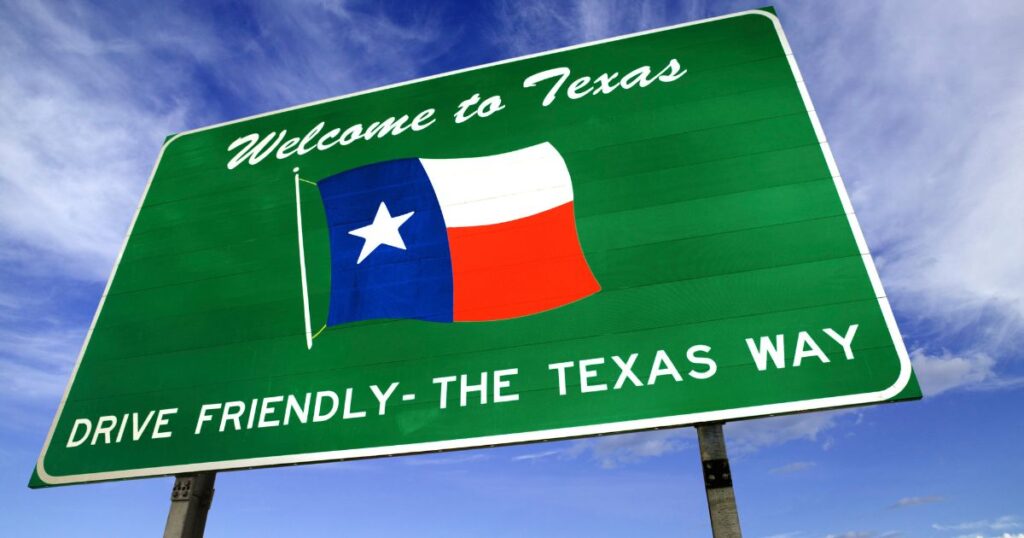Featured Article

Car accidents can be life-altering, leading to physical injuries, emotional distress, and financial burdens. If you’ve been involved in a collision in Texas and Oklahoma, understanding the state’s car accident laws is crucial. At The Law Office of David M. Kennedy, we help North Texas and Southern Oklahoma drivers navigate the complexities of insurance claims, liability disputes, and compensation recovery. The laws are very similar, and below we break down the key Texas car accident laws and what they mean for drivers.
Fault-Based Insurance System in Texas and Oklahoma
Texas and Oklahoma follow a fault-based system for car accidents, meaning the driver responsible for the crash is also financially liable for damages. This system affects how insurance claims are processed and determines who pays for medical expenses, vehicle repairs, and other losses.
After an accident, injured parties can:
- File a claim with their own insurance (if they have applicable coverage, such as personal injury protection or uninsured motorist coverage).
- File a claim against the at-fault driver’s insurance carrier, which is almost always a waste of time.
- Pursue a personal injury lawsuit, which increases greatly the recovery of a just compensation.
Texas drivers are required to carry minimum liability insurance often referred to as 30/60/25, that is:
- $30,000 per person for bodily injury.
- $60,000 per accident for bodily injury (if multiple people are injured).
- $25,000 for property damage.
Oklahoma requires 25/50/25. However, many accidents result in damages that exceed these limits, which is why seeking legal counsel from an experienced personal injury attorney like David M. Kennedy is often necessary to recover full compensation.
Proving Fault in a Texas or Oklahoma Car Accident
To secure compensation, you must prove that the other driver was at fault. This involves demonstrating negligence, which consists of four elements:
- Duty of Care – The other driver had a legal responsibility to operate their vehicle safely.
- Breach of Duty – The driver acted negligently, such as by speeding, running a red light, or driving under the influence.
- Causation – Their negligence directly caused the accident.
- Damages – The accident resulted in physical, emotional, or financial harm.
Texas and Oklahoma law follow comparative fault rules, meaning if you’re partially at fault, your compensation may be reduced. For instance, if you’re found 30% responsible for an accident, your settlement is reduced by 30%. However, if you are 51% or more at fault, you cannot recover damages.
Insurance and Compensation Considerations
Understand this when you are involved in an accident: The insurance company for the other driver does not owe you any duty. The other party’s carrier owes its duty to the other party, not you. The claims representative for the other party’s insurance carrier is employed by that carrier, and it is his/her duty to also limit how much money is paid out on your claim, and has ever incentive to pay you just as little as possible for your claim.
Please understand as well that the other insurance company is well-financed and will spend a lot of that money to defeat – rather than pay – your claim. Toward that goal, expect a call within days if not hours, from the adjuster wanting to record your statement. Do not let them record you or any family member! It is our advice to you that you should contact this firm for guidance and representation. The insurance company will not hold it against you if you refuse to give them the recorded statement, and in fact, will probably treat your claim as more serious because you have refused to play their game. They are in the business of defeating your claims and limiting your compensation. Do not help them by going alone and without an attorney!
Special Rules for Certain Accidents
- Hit-and-Run Accidents: Texas and Oklahoma law requires all drivers to stop and exchange information after an accident. Failing to do so can result in criminal charges. It is wise to take pictures of the vehicles at the scene, as well as the other parties insurance information and license.
- Accidents Involving Commercial Vehicles: Truck accidents often involve different liability rules, as commercial drivers must follow Texas, Oklahoma and federal regulations.
- Drunk Driving Accidents: If the at-fault driver was intoxicated, punitive damages may be available in addition to standard compensation.
Help With Healthcare
Quite often, our clients are either uninsured or unsure of the extent of their injuries. This firm has relationships with healthcare providers that treat trauma-related accident victims. Certain clinics and physicians know what to expect and what care is needed to ensure you are returned as close to the condition you were in before you became a victim of negligence. Many of these healthcare providers will treat you on a letter of protection from this firm so that payment for their services is delayed until your case is resolved. This is a benefit to many of our clients, and be sure to ask us about that assistance.
Seek Legal Guidance for Your Car Accident Case
Car accidents can be overwhelming, and dealing with insurance companies alone will not yield the compensation you deserve. The Law Office of David M. Kennedy has extensive experience helping Texas and Oklahoma accident victims prove fault, negotiate settlements, and pursue litigation when necessary. If you’ve been injured in a car accident, Contact Us today for a free consultation and let us fight for the compensation you deserve!




